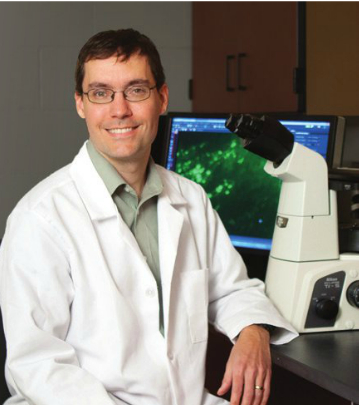Podcast: Play in new window | Download
Subscribe: Apple Podcasts | RSS
Dr. Murray Blackmore is an Assistant Professor in Biomedical Sciences at Marquette University. He received his undergraduate degree from Stanford University and his PhD in Neuroscience from the University of Minnesota. He then completed a postdoctoral fellowship at the Miami Project to Cure Paralysis at the University of Miami, where he remained for two additional years as a Research Assistant Professor before assuming his current position. Murray is here with us today to tell us all about his journey through life and science.
Neurons depend on long axons to communicate with target cells. Neurons in the brain and spinal cord have almost no ability to regenerate axons that are disrupted by injury or disease, resulting in a devastating and permanent loss of function. On the other hand, many other types of neurons, including peripheral neurons, neurons in lower vertebrates, and embryonic neurons, can regenerate their axons robustly. What mechanisms allow regeneration in some types of neurons but prevent it in others? The goals of Murray’s research program are to 1) identify genes that explain differences in regenerative ability between different types of neurons and 2) manipulate gene expression in neurons to promote regenerative ability. To do so, he compares gene expression in regenerating versus non-regenerating neurons, and then tests the activity of differentially expressed genes in culture assays of axon outgrowth. Then, using viral-mediated gene delivery in a rodent model of spinal cord injury, he tests the strongest candidate genes for the ability to promote axon growth in living animals. Ultimately, Murray’s lab aims to develop gene therapies to promote the regrowth of axons in the injured spinal cord and brain.

Wonderful interview. I loved hearing about everything leading up to Dr. Blackmore’s career in genetics. Fantastic job!
Thanks! We’re glad you enjoyed Murray’s interview! He certainly has a fascinating story.